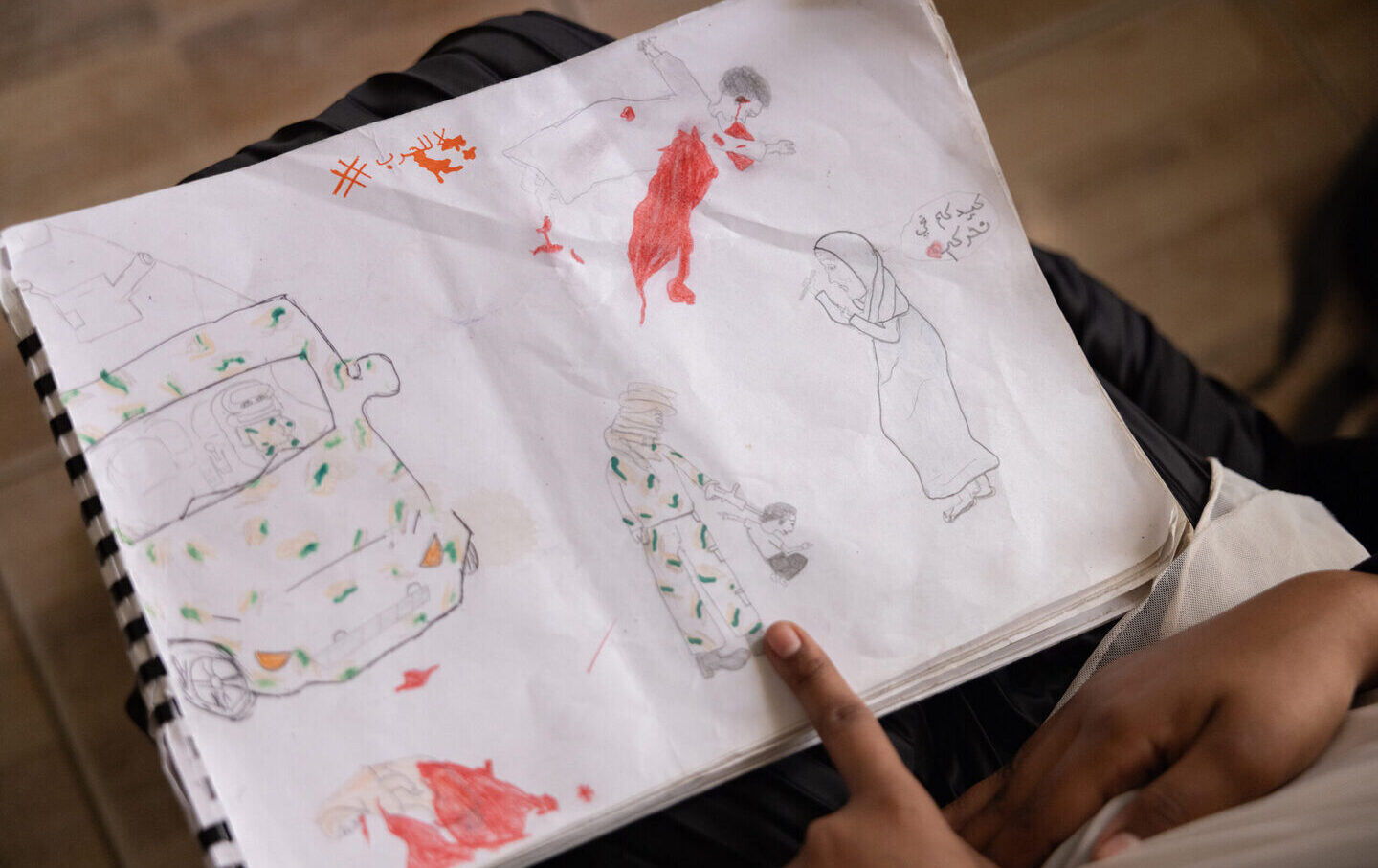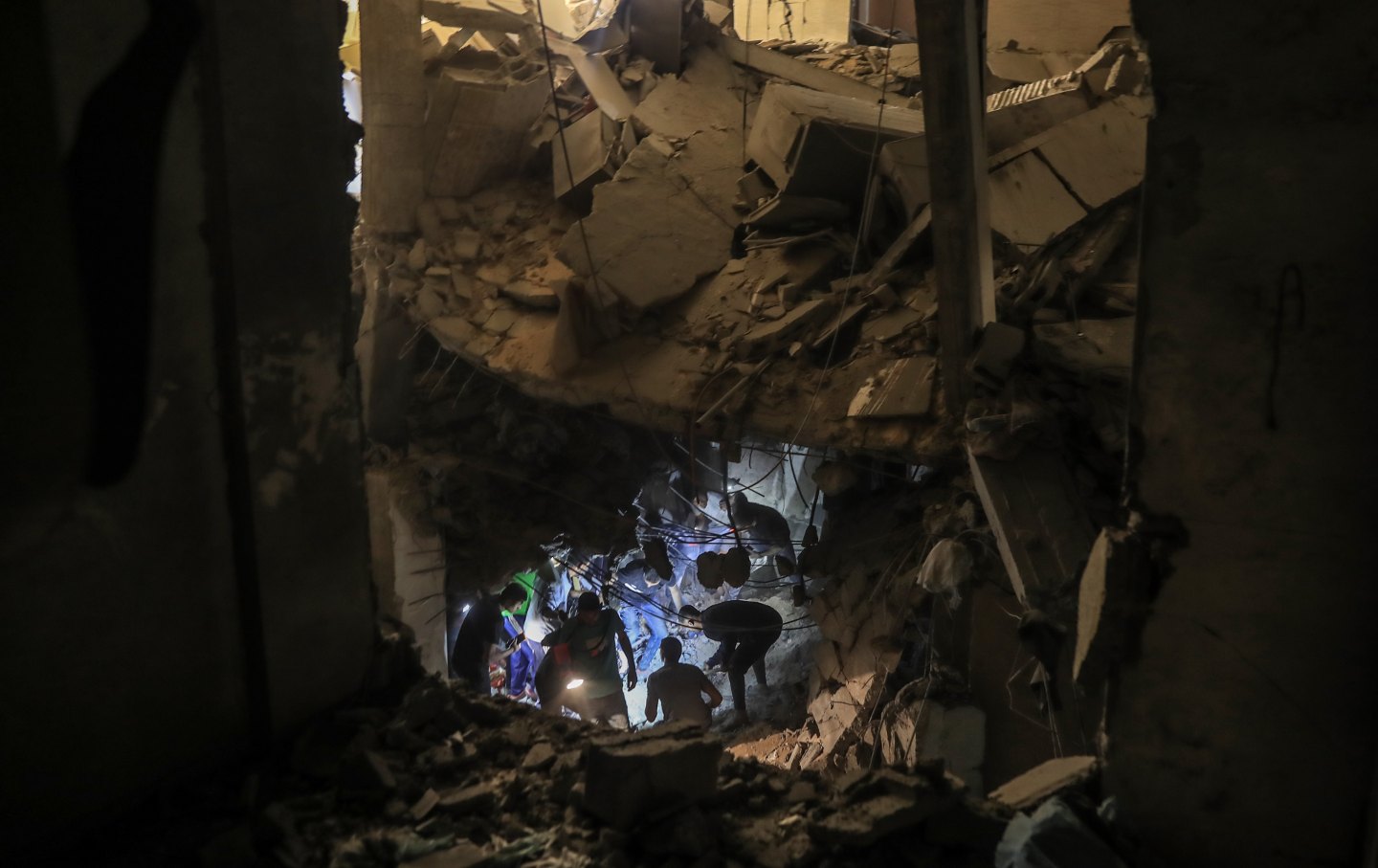Over the past decade, the geopolitical landscape shifted beneath the feet of the United States. The end of the Cold War, the unipolar moment in which the US was the unquestioned hegemon of the world, is over. Thirty years later, that moment is a distant memory, as the dollar steadily declines as a share of global currency reserves, traditional US allies forge trade agreements with US adversaries, and a rising Global South seeks new rules for trade, development, and security.
To be sure, the bipartisan US political establishment aided and abetted the demise of the unipolar moment with reckless policies such as launching an unwinnable war in Afghanistan and an endless war in Iraq and engaging in irresponsible fiscal policies that have raised the US national debt by 520 percent since 2000, culminating with the 2008 financial crises. It is no wonder that now, as the US is intensely involved in fending off Russia’s war of aggression against Ukraine alongside allies in Europe, middle powers such as Saudi Arabia, South Africa, Turkey, and Egypt collectively shrug.
Meanwhile, despite a US-led sanctions regime, countries like India and China continue to do business with Russia and refrain from reprimanding Moscow. Unfortunately, although not unexpectedly, many countries in the Global South believe it is the height of hypocrisy for the United States to criticize Russia for launching a reckless invasion when Washington has recently engaged in similar military adventurism.
Global powers like Russia and China aren’t the only countries seeking to defend their spheres of influence, warned former State Department and National Security Council staffer Fiona Hill in a speech in May:
Other countries that have traditionally been considered “middle powers” or “swing states”—the so-called “Rest” of the world—seek to cut the US down to a different size and exert more influence in global affairs. They want to decide, not be told what’s in their interest. In short, in 2023, we hear a resounding no to US domination and see a marked appetite for a world without a hegemon.
It is in this paradigm that the US needs to digest some hard truths. First, Washington cannot continue to mischaracterize all its interventions or involvement in conflicts as defending the “rules-based order.” For example, the Trump administration went against international law by recognizing Israel’s annexation of the Golan Heights and unilaterally withdrew from the Security Council–endorsed Iran nuclear agreement.
The Obama administration intervened in Libya and Syria and George W. Bush invaded Iraq, all without the support of the United Nations. To many countries, the United States follows the “rule for thee but not for me” as it continues to pick and choose which conflicts it frames as ones that violate “the rules-based order” and which do not.
Washington must accept that friends and allies will often go their own way if their interests are not aligned with America’s on the world stage. Saudi Arabia and Iran squashed their decade-long estrangement with the help of Chinese mediation. Many Persian Gulf Arab states who rely on Washington’s security guarantee are actively trading in Russian oil in seeming indifference to the United States. India, whom the US counts on to balance China in the “Indo-Pacific,” increased its energy and arms purchases from Moscow since the war began. Brazil, Argentina, South Africa, and other BRICS countries are actively looking to trade with each other in currencies that are not US-dollar-denominated.
Indeed, incentives for breaking from Washington’s “rules” have been made higher than ever by the expansive implementation of extraterritorial sanctions as a central tenet of US statecraft. Forty percent of global oil reserves are under US sanctions, creating enormous pressure on oil producers and buyers to shift to non-dollar oil sales.
In 2001, the dollar accounted for 73 percent of global currency reserves. This year, it is 58 percent, a 15 percent reduction.
The problems don’t end with de-dollarization. US commitments to its own bilateral agreements and geopolitical stability are coming under scrutiny as calls grow in Washington to end US “strategic ambiguity” regarding the defense of Taiwan against potential Chinese aggression. Then–House Speaker Nancy Pelosi’s trip to Taiwan on a US Air Force plane last summer incited China to conduct aggressive naval maneuvers in the South China Sea. It also raised concerns about US commitments to the five-decades-old Shanghai Communique and the “one China policy,” the foundation of US-China relations since 1972.
These provocations are coupled with calls for economic “decoupling” from China. Beijing is Washington’s single largest trading partner and both parties have largely favored engagement with China over the past five decades, leading to Beijing’s permanent membership on the UN Security Council as well as ascension to the WTO.
A “decoupling” between the two largest economies in the world in favor of zero-sum military competition, an about-face in US policy, poses severe consequences for both the United States and China. For the rest of the world, bifurcating the globe into competing blocks with different standards of trade, and technology, engaging in frenetic competition potentially leading to a military confrontation, is an outcome to be avoided.
Some in Washington may want the US to continue conducting business as usual even as much of the world chooses to stand on the sidelines of the Russia-Ukraine war, steadily de-dollarize their economies, and no longer view the US, or the institutions it has helped birth, such as the UN, as sources of legitimate rules. But this is an act of futility with disastrous repercussions on Washington and the global community.
Climate change, a war in Ukraine, and emerging technologies like artificial intelligence all pose global threats. But the United States is still a global leader. It should advocate for true multilateral burden sharing through existing and new institutions and agreements. The US could stop “policing” the world order as it sees fit, and become a vital participant in convening countries to solve humanity’s most vexing problems.
The “rules-based international order” is in irreversible free fall. Accepting that fact and leading the drive for a new, more inclusive and imaginative, political and economic order is a task the United States could be well positioned to embrace.
We need your support
What’s at stake this November is the future of our democracy. Yet Nation readers know the fight for justice, equity, and peace doesn’t stop in November. Change doesn’t happen overnight. We need sustained, fearless journalism to advocate for bold ideas, expose corruption, defend our democracy, secure our bodily rights, promote peace, and protect the environment.
This month, we’re calling on you to give a monthly donation to support The Nation’s independent journalism. If you’ve read this far, I know you value our journalism that speaks truth to power in a way corporate-owned media never can. The most effective way to support The Nation is by becoming a monthly donor; this will provide us with a reliable funding base.
In the coming months, our writers will be working to bring you what you need to know—from John Nichols on the election, Elie Mystal on justice and injustice, Chris Lehmann’s reporting from inside the beltway, Joan Walsh with insightful political analysis, Jeet Heer’s crackling wit, and Amy Littlefield on the front lines of the fight for abortion access. For as little as $10 a month, you can empower our dedicated writers, editors, and fact checkers to report deeply on the most critical issues of our day.
Set up a monthly recurring donation today and join the committed community of readers who make our journalism possible for the long haul. For nearly 160 years, The Nation has stood for truth and justice—can you help us thrive for 160 more?
Onwards,
Katrina vanden Heuvel
Editorial Director and Publisher, The Nation








